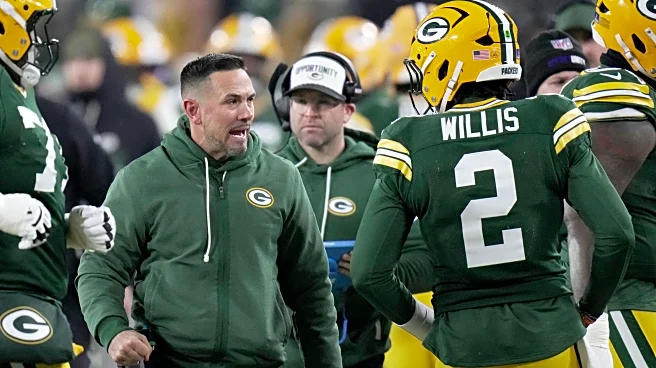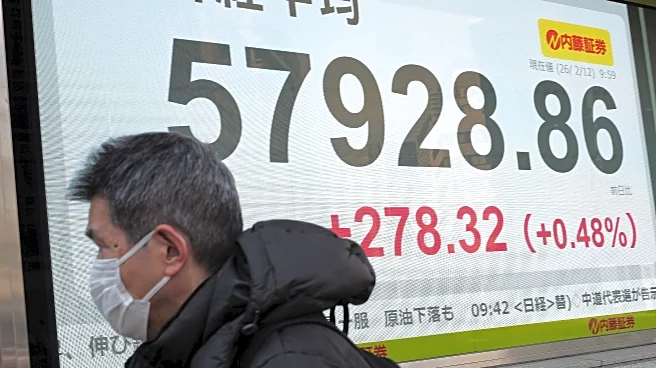What's Happening?
Pennsylvania voters are set to decide whether three Democratic justices will remain on the state Supreme Court for another 10-year term in a contentious election. Justice David Wecht, one of the justices facing a retention vote, has warned that a deadlock
could occur if these justices are removed, leading to a shorthanded court. Wecht highlighted the challenges of operating with fewer members, noting past experiences with a six-member court that resulted in deadlocks and increased workload. The retention elections, typically low-profile, have gained significant attention and funding due to the potential impact on the Democrats' 5-2 majority on the court. If all three justices lose their positions and the Republican-controlled Senate and Democratic Governor Josh Shapiro cannot agree on temporary appointments, the court could be deadlocked 2-2 until the end of 2027.
Why It's Important?
The outcome of this election holds significant implications for Pennsylvania's judicial system and political landscape. A deadlocked Supreme Court would defer decisions to lower courts, potentially stalling legal precedents in the state. This situation could affect critical legal rulings and the interpretation of laws, impacting various stakeholders, including political parties, legal professionals, and the general public. The election has attracted attention from high-profile figures, including former President Barack Obama and President Trump, indicating its importance in shaping future political and legal dynamics in Pennsylvania. The potential deadlock could also influence upcoming elections in 2026 and 2028, affecting the balance of power in the state.
What's Next?
If the justices are removed, the Pennsylvania Supreme Court may face a prolonged period of deadlock, with significant implications for legal proceedings in the state. The inability to set new precedents could lead to uncertainty in legal interpretations and affect ongoing and future cases. Political leaders, including Governor Shapiro, may face challenges in appointing replacements due to partisan disagreements. The election's outcome could also influence future judicial appointments and the political climate in Pennsylvania, with potential ramifications for national politics given the state's battleground status.
Beyond the Headlines
The contentious nature of this election reflects broader political divisions and the increasing politicization of judicial appointments. The involvement of high-profile political figures and significant ad spending underscores the strategic importance of judicial control in shaping legal and political outcomes. The election highlights the challenges of maintaining judicial independence in a polarized environment, raising questions about the role of the judiciary in safeguarding democratic principles and ensuring fair legal processes.


















